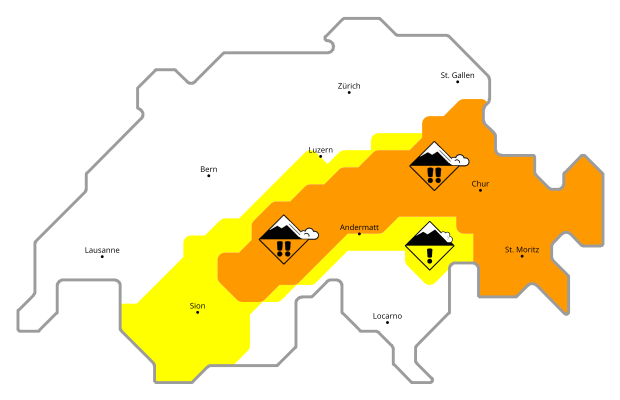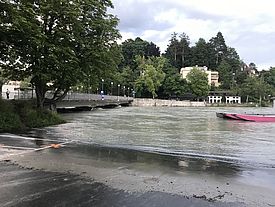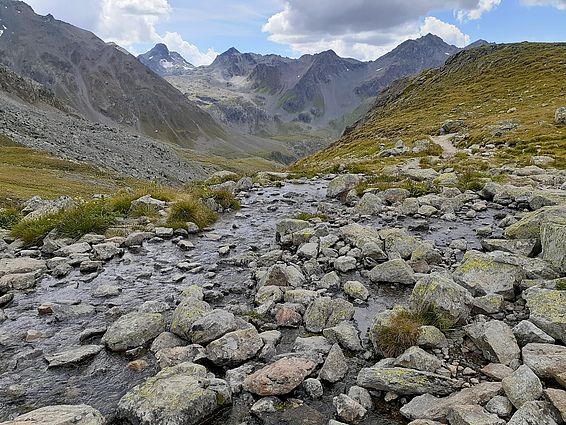More droughts in summer and autumn – combined, paradoxically, with an increased risk of flooding – and, in the long term, less snow in winter. Climate change is altering the Earth's water balance.
Switzerland has got drier. According to an SLF study, the duration of drought periods has decreased in recent decades, but their intensity has increased – throughout the Alpine region. A long-term comparison also shows that, between 1994 and 2017, a lack of snow was responsible for low water levels in Swiss watercourses around 15% more often than between 1970 and 1993. If there is little snow in winter and low precipitation the following summer as well, there is a real risk of drought during the summer.
While a lack of snow is mainly due to low levels of precipitation, the warmer temperatures caused by climate change further exacerbate the situation. If it is too warm in winter and rain falls instead of snow, this also has a negative impact: the precipitation is not temporarily immobilised as snow, so much of the water goes straight into rivers and lakes and flows away. As a result, the regulating effect of snowmelt on the water balance, in both the mountains and the lowlands, does not occur.
Climate change accentuates the problem in another way too: as temperatures rise, more water evaporates and soils and river beds dry out faster. And there is no prospect of an improvement any time soon. On the contrary: according to SLF researchers, this trend is set to continue.
A further effect of this situation is that when precipitation does come, it falls on hard, dry ground and flows off quickly, increasing the risk of flooding. The SLF's Hydrology & Climate Impacts in Mountain Regions research group is therefore investigating, among other things, the relationship between drought and flooding. In the long term, this will also help communities to better protect themselves from extreme events.
But it's not just about protecting people from extreme events. Droughts also have economic consequences. These are obvious in agriculture and forestry, because dry conditions in summer and autumn cause problems for a range of plants, from grasses and shrubs through to trees. On top of this, cantons can impose bans on water extraction when water levels are low. Farms are then not allowed to use water for irrigation purposes. The same applies to garden owners.
WSL researchers also anticipate problems at high altitudes. Alpine farming is only viable if there is enough fresh water available. Otherwise, the season ends earlier, as happened for example in 2022. In 2018, which was another dry year, farmers even had to slaughter some of their livestock.
Drought also causes problems for the power sector, because a lack of precipitation reduces the amount of electricity that hydroelectric power plants can generate, due to falling reservoir levels. The waterways, especially the Rhine, are also vital for Switzerland, as the ports in Basel are the country's largest transshipment point for goods. Low water levels force ships to travel more slowly and transport smaller volumes.
Previously published in this series:
- Part 1: Climate change and… winter sports
- Part 2: Climate change and... biodiversity
- Part 3: Climate change and… avalanches
- Part 4: Climate change and... forests
- Part 5: Climate change and… glaciers
- Part 6: Climate change and... permafrost
Contact
Media Office SLF
- Telephone: +41 81 417 01 90
- E-Mail: medien(at)slf.ch
Links
Copyright
WSL and SLF provide image and sound material free of charge for use in the context of press contributions in connection with this media release. The transfer of this material to image, sound and/or video databases and the sale of the material by third parties are not permitted.


